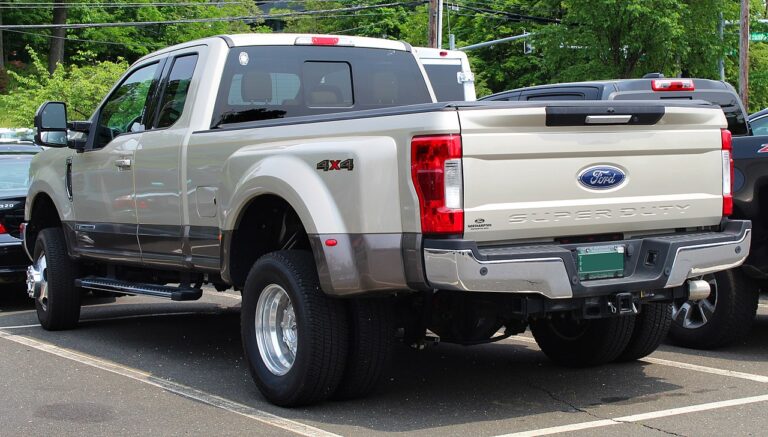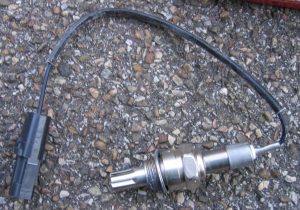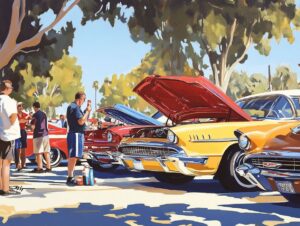
Just like anything in life, diesel engines have pros and cons, and while they may be suited to one person’s lifestyle, they may not be a viable option for everyone.
Here, let’s look into the pros and cons of a diesel engine in comparison to fuel engines.
Fuel economy
A popular benefit of a diesel engine is the fuel economy they deliver – a full tank of diesel fuel will last longer than that of petrol. Looking at numbers, they actually offer between 25 and 30 percent better fuel economy.
The efficient fuel economy makes diesel engines suitable for those who tend to drive high-mileage trips.
With this understanding and the fluctuating fuel prices, the price of diesel would need to be 25-30% more expensive than petrol in order for it to be more expensive to keep a diesel engine running. Also understand that a gas engine can be more efficient, especially when it comes to any modern vehicle.
Maintenance
Diesel engines acquire less components than that of a gas engine – they don’t use spark plugs, have better engine efficiency and less wear and tear. For these reasons, owners of diesel-powered vehicles find they don’t need to go to an auto repair shop frequently for servicing or repairs.
When it comes to durability, diesel engines last longer due to their ability to handle higher compressions, which reduces the chances of needing to replace the entire engine.
Fortunately, you don’t need to undertake as many oil changes with a diesel engine. It is recommended that you change your oil every 7,500 miles in comparison to 3,500 to 5000 miles with a gas engine.
Let’s talk about the cons of diesel engine repairs and maintenance. While you may visit the mechanics less, it does, however, generally cost more when you do need to repair your diesel engine. This is due to diesel engine parts acquiring more advanced technology, therefore costing more to replace or repair.
You will need to change fuel filters and many diesel-powered vehicles still require you to empty the water separators manually. A typical service on a diesel engine is more expensive than that of a gasoline engine. They use more oil and require the change of a fuel filter (or multiple fuel and oil filter if it’s a heavy duty truck).
All in all, maintenance can be cheaper in gasoline engines, but the cost of repairs over a lifetime may be cheaper for a diesel.
Fuel Emissions
A significant pro to diesel engines is the fact they emit lower emissions than their fuel counterparts.
Fuel engines generate higher amounts of HC and CO2, and produce CO, more commonly known as Carbon Monoxide, as a by-product when warming up, unlike that of diesel engines. In fact, fuel engines create 20% more CO2 – the greenhouse gas emission directly contributing to climate change.
Over time, diesel engines additionally generate less NOx. However, it does vary depending on the age of the vehicle. Brand new diesel-powered vehicles will create more NOx than brand new fuel-powered vehicles.
While one pro to diesel engines is reducing emissions, a con is that they do create an increased amount of hydrocarbons and Suspended Particulate Matter (SPM), which are essentially particles such as soot. Hydrocarbons are linked to causing respiratory issues.
Power: Diesel VS Gasoline
Diesel engines tend to be in-line, direct-injection and have four or six cylinders. A large amount of these engines are turbocharged with aftercoolers. Heavy duty trucks commonly have medium engines with power capacities of 188-750 kilowatts, or alternatively 252-1006 horsepower.
The way in which diesel engines burn fuel provides more torque to the draft shaft, allowing for a quicker speed from a standing start. In addition, vehicles with diesel engines can out-tow petrol engines, making them a greater option for larger 4WD’s for off-roading and longer trips. As a whole, diesel engine vehicles are stronger and more enduring than vehicles run by gasoline.
The best option for the environment is an electric or hybrid vehicle, but this may not be viable for your budget or unique situation. These tips should help guide you to a more informed decision.
Conclusion
It’s recommended you research more and weigh out the pros and cons while considering your needs in a vehicle.
We see it all the time – that guy who buys a huge diesel truck and doesn’t even use it to haul anything. Don’t be that guy. Buy a truck that does what you need it to. A basic F-150 can be modified to look more aggressive, if that’s what you want.
Here’s a video by The Fast Lane Truck that explains the top 5 pros and cons of diesel engines vs gasoline engines in pickup trucks. Since most people interested in diesel are considering buying a truck, this might be a more helpful comparison..

Automotive professional with over two decades of experience working on vehicles. Started out at a tire shop, moved to a dealership and now writing about automotive topics full time. I love working on cars and helping car enthusiasts by writing about my experiences.






